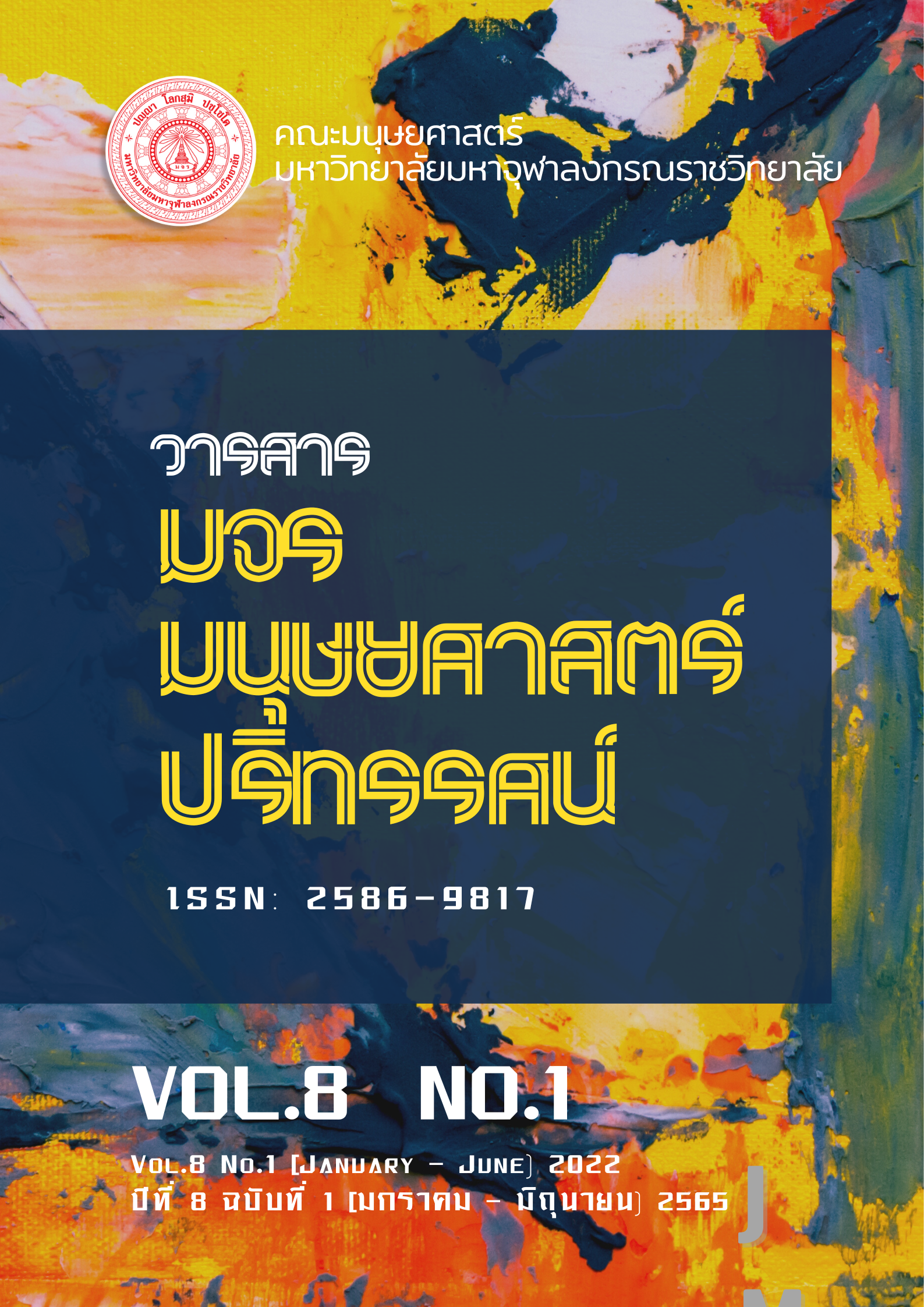สุขภาวะองค์รวม: ผู้สูงวัยป่วยกาย ไม่ป่วยใจ ตามแนวพุทธจิตวิทยา
คำสำคัญ:
สุขภาวะองค์รวม, ผู้สูงวัย, ป่วยกาย, ป่วยใจ, พุทธจิตวิทยาบทคัดย่อ
บทความนี้มีจุดมุ่งหมายให้เห็นถึงความสำคัญในการใช้หลักธรรมคำสอนขององค์สมเด็จพระสัมมาสัมพุทธเจ้าซึ่งมีมานานกว่า 2,600 ปี และทฤษฎีจิตวิทยาที่มีหลักทฤษฎีสร้างวิธีคิดบวกเป็นที่ยอมรับของคนทั่วไป โดยจะนำมาบูรณาการรวมกันเรียกว่า พุทธจิตวิทยา เป็นการใช้หลักการทั้งทางพุทธศาสนาและทฤษฎีจิตวิทยาในการเสริมสร้างความสุข รับรู้ความทุกข์ด้วยใจที่เข้าใจธรรมชาติ เกิดความรู้ใหม่ในการส่งเสริมความสุของค์รวมให้แก่ผู้สูงวัย ให้มีการรับรู้ต่อการเปลี่ยนแปลงที่เกิดขึ้นในวัยของผู้สูงวัย สามารถพัฒนาจิตใจจนกลายเป็นจิตใจที่ยอมรับ รับรู้ ต่อการเปลี่ยนแปลงทางกายได้ เรียกว่า เมื่อกายป่วย ใจไม่ป่วย อันนำมาซึ่งความสุขแบบภาวะองค์รวมได้ ซึ่งความหมายของสุขภาวะองค์รวม คือ ภาวะความสุขขององค์ประกอบหลายด้านมาร่วมกันเป็นองค์รวม ได้แก่ ทางด้านร่างกาย ทางด้านจิตใจ ทางด้านสังคม ทางด้านอารมณ์ และทางด้านปัญญา ทำให้ผู้สูงวัยสามารถมีความสุขได้แม้ร่างกายจะมีทุกข์จากความเสื่อมตามสังขารที่เปลี่ยนแปลงจากวัยที่เพิ่มมากขึ้น
ผู้เขียนมุ่งหวังว่าผู้สูงวัยที่กำลังป่วยกาย หรือผู้ที่ต้องการศึกษาทำการศึกษาไว้ก่อนที่จะเจ็บป่วย ได้เริ่มเรียนรู้การบูรณาการศาสตร์ทั้งสอง เพื่อทำความเข้าใจในชีวิตที่ถ่องแท้ ตามคติธรรมที่กล่าวว่า ไม่มีใครในโลกนี้ จะหลีกหนีไปพ้นได้ คือความแก่ ความเจ็บและความตาย
เอกสารอ้างอิง
กระทรวงพัฒนาสังคมและความมั่นคงของมนุษย์ (2553 ).พระราชบัญญัติผู้สูงอายุ พ.ศ. 2546. กรุงเทพ: โรงพิมพ์เทพเพ็ญวานิสย์.
ฉวีวรรณ คงโชคสมัย. (2562). The Organice Creative Talk. สืบค้น 24 ธันวาคม 2564, จาก https://creativetalklive.com.
พระอธิการไพศาล วิสาโล (วงศ์วรวิสิทธิ์). (2562). ป่วยกาย แต่ไม่ป่วยใจ (เผชิญความป่วยไข้ด้วยใจที่ปล่อยวาง). สืบค้น 24 ธันวาคม 2564,จาก https://www.youtube.com.
มหาจุฬาลงกรณราชวิทยาลัย. (2539). พระไตรปิฎกฉบับภาษาไทย ฉบับมหาจุฬาลงกรณราชวิทยาลัย. กรุงเทพมหานคร: โรงพิมพ์มหาจุฬาลงกรณราชวิทยาลัย.
ยงยุทธ วงศ์ภิรมย์ศานติ์. (2552). จิตวิทยาแนวพุทธ: กรมสุขภาพจิต กระทรวงสาธารณสุข. พระราชบัญญัติสุขภาพแห่งชาติ (2550, มีนาคม 19). ราชกิจจานุเบกษา, เล่ม 124 (ตอนที่ 16 ก), หน้า 1.
สมเด็จพระพุทธโฆษาจารย์ (ป.อ.ปยุตฺโต). (2564). พจนานุกรมพุทธศาสตร์ ฉบับประมวลธรรม (พิมพ์ครั้งที่ 27). กรุงเทพ: โรงพิมพ์ บริษัทสหธรรมิก จำกัด.
สำนักงานกองทุนสนับสนุนการสร้างเสริมสุขภาพ. (2564). การดูแลสุขภาพองค์รวม หรือ Holistic Health คืออะไร. สืบค้น 9 เมษายน 2565, จาก https://www.thaihealth.or.th/blog/myblog/topic/1186
Bendura, A. (1997): Self-Efficacy: The Exercise of Control. W H Freeman & Co. New York, New York.
Bandura, A. (1997). Social Learning Theory. Alexandria, VA: Prentice Hall. P.
Seligman, Martin E.P. (2000). Positive Psychology: An Introduction. American Psychologist.
Seligman, Martin E.P. (2002). Authentic happiness: Using the new positive psychology to realize your potential for lasting fulfillment. New York, NY: Fress Press.
Seligman, Martin E.P. (2012). Flourish: A Visionary new understanding of happiness and well-being. New York, NY: Atria Paperback.

ดาวน์โหลด
เผยแพร่แล้ว
รูปแบบการอ้างอิง
ฉบับ
ประเภทบทความ
หมวดหมู่
สัญญาอนุญาต
ลิขสิทธิ์ (c) 2022 วารสาร มจร มนุษยศาสตร์ปริทรรศน์

อนุญาตภายใต้เงื่อนไข Creative Commons Attribution-NonCommercial-NoDerivatives 4.0 International License.





